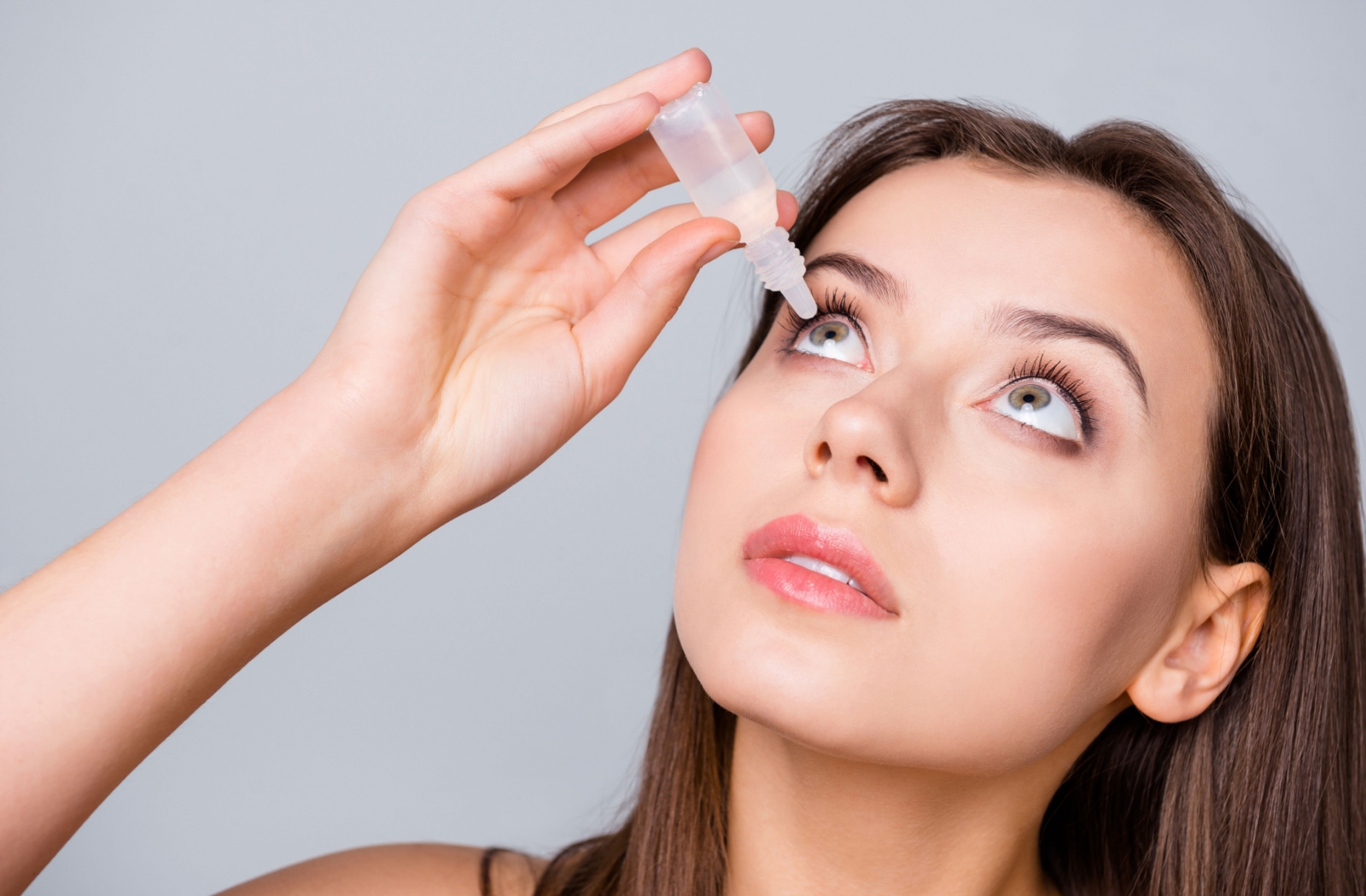Dry eyes are a common condition affecting millions of people every year. Caused by a number of environmental, work and lifestyle choices like screen time and health related issues, it can lead to discomfort, redness, and a burning sensation in the eyes. While these symptoms are common, there’s one more symptom that many people wonder about: can dry eyes cause blurry vision?
Yes, Dry eyes can lead to blurry vision. Fortunately, there are quality artificial tears and many treatment options, by which this condition can be managed, reducing its effect on your life. It’s important to visit your optometrist for a comprehensive eye exam so they can help determine what’s causing your dry eyes and help build a plan to treat them.
Can Dry Eye Cause Blurry Vision? & How?
Dry eyes are caused by a problem in one or more components of the tear system, creating an imbalanced tear film and lack of lubrication. The tear film plays a crucial role in maintaining the health and function of your eye’s surface. It forms a protective layer, preventing evaporation, and providing nourishment to the surrounding tissues. It also helps light pass through your eyes without distortion.
The tear film is made of 3 layers:
- The mucus layer is the base which helps keep the tears smooth and attached to the eye itself.
- The watery layer, which hydrates and nourishes the eye while also acting as a flushing agent, washing out dust and debris.
- The oil layer is the top surface which when healthy coats and protects the eye from evaporation.
When there’s a problem with one of these layers, you can develop dry eye disease. An unhealthy tear film can disrupt how light enters your eye, decreasing visual clarity. So now we can see how dry eyes can cause blurred vision.
Can Dry Eye Cause Temporary Blurry Vision?
Another common question. Many causes of dry are are controllable so dry eye and symptoms of blurred vision can be reversed and are only temporary. In these cases, blurry vision is usually a direct consequence of:
- Dry environment
- Exposure to dust or wind
- Prolonged screen time or reading
- Wearing contact lenses for extended periods of time
- Dehydration
- Medications can have a side effect of reduced tears
Activities that affect how often you blink can worsen dry eye symptoms and temporarily blur your vision. Researchers have found that people blink significantly less often when working on a digital screen, phone and even reading a book. Blinking is essential for refreshing the tear layer and lubricating your eyes, so when you blink less often, it’s no surprise that dry eyes can occur.

Can Chronic Dry Eye Cause Blurry Vision?
Many people have and are concerned about chronic dry eyes. This condition can worsen and lead to permanent reduction in tear production and even corneal scarring. By chronic, we mean that the condition has persisted for an extended period of time. With chronic dry eye, the surface of your eye constantly suffers from insufficient lubrication, poor nutrition and inflammatory issues. This can lead to potential permanent damage to the tear system.
Chronic dry eyes can be caused by several factors, including but not limited to:
- Extended exposure to computer & video screens
- Age
- Hormonal changes
- Long term exposure to drying environmental factors
- Medication
- Certain medical conditions like Sjorgren’s syndrome or rheumatoid diseases
So now we can understand, the symptoms of dry eye can lead to structural changes in the eye that further affect visual clarity and cause long term problems. Luckily there are good products and treatments to minimize its effect on your life.
Can Dry Eye Cause Blurry Vision at Night?
Some people experience worse dry eye symptoms at night. This can occur due to various factors. Dry eyes can be cumulative, meaning a day of drying conditions can add up resulting in feeling worse in the evening.
Eyes produce less tears when you sleep. For some, eyes can be very dry upon waking. Special lubricants are available to help this. Also, if you sleep with a fan on, it may also dry out your eyes and result in discomfort on waking.
How to Treat Dry Eyes
Everyone experiences dry eyes differently, making it important to visit your optometrist so they can determine the cause of your dry eyes and build a customized plan to treat your symptoms and specific underlying conditions. To start, they’ll recommend traditional care like:
- Using best quality artificial tears or lubricant eye drops
- Adding Omega 3’s to your diet
- Adding a nighttime lubricant so you wake up with comfortable eyes
- Applying warm compresses with a prescribed lids massage to increase tear function
If the above isn’t sufficient to gain relief, treatments like IPL (Intense Pulsed Light), RF (Radio Frequency) and iLux are available to boost tear system function.
When it comes to treating dry eye disease, it’s important to consult an eye doctor to determine what’s causing your condition. Then a custom plan can be built to treat your particular needs and improve your quality of life.
Here at In Focus Eyecare, we know how frustrating dry eyes can be. Schedule an appointment with us today so we can help treat your dry eyes.





